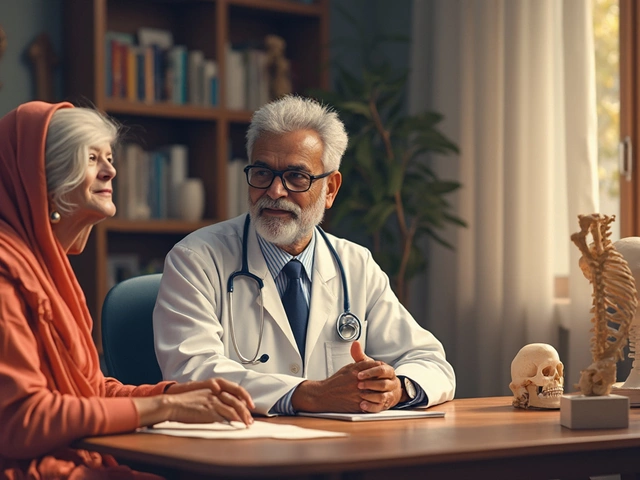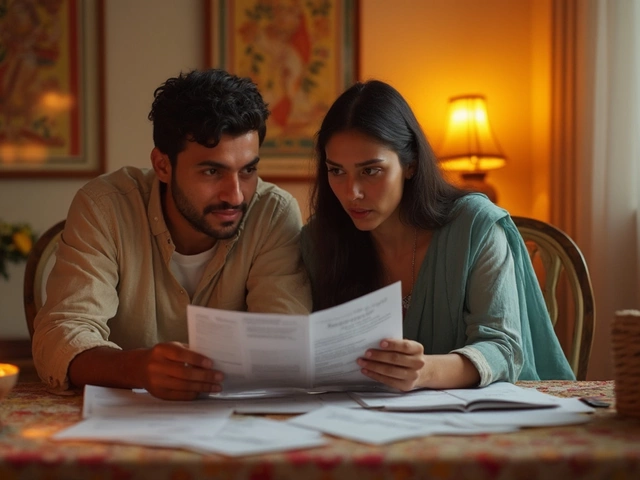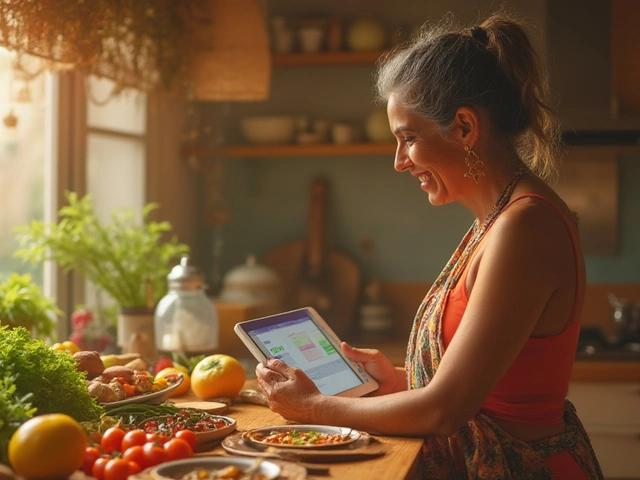
Online pharmacies are popping up like mushrooms after the rain, offering convenience that’s hard to beat. But before you jump in and make a purchase, there are a few potential risks you need to know about. These pharmacies might save you a trip to the store, but they could also deliver problems right to your door.
First off, the chance of encountering counterfeit drugs is real. Unlike the local pharmacy, where you can chat with a pharmacist and verify credentials, the web is a bit more anonymous. Who’s to say what you're getting is actually what's advertised? Only about 5% of online pharmacies are legitimate, which sounds scary, doesn't it?
Another biggie is privacy concerns. Think about all the personal information you’re sharing—address, medical history, even credit cards. If a site isn't secure, that could spell trouble. Prioritizing safety over a quick click is vital here. What's more, if the pharmacy doesn’t enforce proper regulations, you risk getting medication that’s not FDA-approved.
- Convenience vs. Risk
- Spotting Counterfeit Drugs
- Privacy Concerns
- Regulation and Legitimacy
- Tips for Safe Online Purchases
Convenience vs. Risk
Choosing an online pharmacy often seems like a no-brainer for many of us. After all, who wouldn’t want to skip the lines and have medications delivered right to their doorstep? But with the ease of access comes a hefty bag of potential problems.
The convenience factor is undeniable—especially if you live in a place where the nearest pharmacy is a good trek away or if your schedule just doesn’t allow for a pharmacy pit stop. With a few clicks, your prescription refill is on its way. Plus, price comparisons online can save you a decent chunk of change. But what about the risks?
Counterfeit Concerns
Let’s talk about counterfeit drugs first. The World Health Organization estimates that over 50% of medications bought from sites that hide or falsify their address come back as fake. Yikes, right? These counterfeit drugs may contain too much or too little of the active ingredient, or even dangerous, unlisted ingredients. It's not just about wasting money; it's about risking your health.
Regulation Issues
Regulation is another sticky point. Many online pharmacies operate outside of the jurisdiction of your local health authorities, and it's unclear whether they adhere to the same strict manufacturing processes. It’s crucial to make sure any online pharmacy you use is properly licensed. A site's legitimacy can often be verified by checking if they're approved by a national pharmacy board.
Privacy Problems
Your personal info is out there too. If a pharmacy site doesn't have strong security measures, everything from your medical history to credit card info could be at risk. Having your data leak is not just uncomfortable, it’s a serious security threat.
So, yes, online pharmacies are convenient, but weighing the risks against that convenience is vital. Always ensure that you're purchasing from reputable, secured sites. It's about making the smart choice, not just the easy one.
Spotting Counterfeit Drugs
When it comes to buying meds online, spotting counterfeit drugs can be as tricky as playing detective. The first rule of thumb: If the price seems too good to be true, it probably is. Scarily enough, counterfeit drugs make up about 10% of the global medicine market, according to the World Health Organization (WHO).
Recognizing Red Flags
Look for certain red flags when you're browsing online pharmacies. Are they asking for a prescription? Legit pharmacies will always require one. If the website promises miracle cures or doesn’t list physical contact details, it’s best to steer clear.
“The lack of a verified prescription is often a major sign of fraudulent pharmacies,” says Dr. Amy Carter, a healthcare expert.
Also, check for a proper seal of approval. Websites approved through systems like Verified Internet Pharmacy Practice Sites (VIPPS) give a bit more peace of mind. It’s like a golden star sticker for pharmacies.
Labels and Packaging
Once you’ve got meds in hand, inspect the packaging. Are there typos, or is the label vague? Brand names and codes should look crisp and accurate. And don’t forget—many genuine meds have unique barcodes or holograms.
Staying Safe
- Always buy from reputable sites. A quick online search about the pharmacy’s background can reveal a lot.
- Stick with names you know, especially those backed by a recognized pharmacy network.
- Talk to a healthcare professional if you’re unsure about the medication’s legitimacy.
The Chilling Consequences
If you end up with counterfeit drugs, the consequences could be anything from no relief to severe adverse effects. The WHO mentions that poor-quality drugs contribute to an estimated 169 thousand childhood deaths per year from pneumonia alone. Ensuring you receive quality meds isn’t just about your wallet; it’s about your health.

Privacy Concerns
Shopping for meds online sounds convenient, but what’s the real cost? Your privacy could be the price you pay. When using an online pharmacy, you're handing over a goldmine of personal info, like your name, address, and maybe even your health records.
Imagine a site that isn't secured properly. Hackers thrive on this stuff. They might swoop in and grab your info faster than you can say, 'privacy breach.' Next thing you know, your confidential details are out there, potentially being sold to the highest bidder.
How Information is Used (Or Misused)
Legit pharmacies will use your data to fill prescriptions and maybe suggest products. But a shady site? They could use your data for marketing without your consent, or worse, commit outright fraud.
Staying Safe
So, how do you keep your info safe? Here are some nuggets of wisdom:
- Ensure the site is secure. Look for 'https' in the URL and a lock icon.
- Read their privacy policy. We know, it's boring, but worth it.
- Limit data sharing. Only provide the essentials.
- Use a credit card rather than a debit card for added fraud protection.
Check for Legitimate Certification
A trusted online pharmacy will be certified by recognized bodies like the VIPPS (Verified Internet Pharmacy Practice Sites). This could be your ticket to safe medication access.
Stay smart and take these steps seriously. Your safety and peace of mind are worth it.
Regulation and Legitimacy
When it comes to online pharmacies, one of the biggest concerns is making sure they are operating legally and ethically. Seems simple, right? Well, it isn't always. The virtual world can be a breeding ground for shady operations, so it’s crucial to dive into the nuts and bolts of regulation and legitimacy.
Checking for Proper Licensing
Before you hit that checkout button, take a second to verify if the pharmacy is licensed. In the U.S., you can look for the VIPPS seal (Verified Internet Pharmacy Practice Sites). It’s like a badge of trust that tells you this site is legit. No VIPPS, no deal! Other countries often have similar programs with their own seals of approval, so it’s worth checking what applies to you.
Role of Government Regulations
Governments worldwide have put strict regulations in place to protect consumers shopping for medication online. The FDA, for example, has a list of online pharmacies that meet their safety and quality measures. Why does this matter? Well, it assures you that your meds aren’t just sugar pills masquerading as a cure-all.
What Happens If You Don't Check?
Ignoring these guidelines can land you in a heap of trouble. Imagine ordering antibiotics and ending up with fake drugs that could harm you. Statistics show that a whopping 95% of online pharmacies operate outside the law, posing health threats with counterfeit and harmful substances.
Verify the Web Address
Don't underestimate the URL. Legitimate sites in the U.S. should end in .pharmacy. Anything else? Be cautious! That domain is designed to assure consumers the site meets safety standards.
Certification Organizations
- National Association of Boards of Pharmacy (NABP)
- FDA's BeSafeRx program
- E-Pharmacy accreditation bodies consistent with JAMA (Journal of the American Medical Association)
Let’s be honest—it takes a little extra time to verify a pharmacy’s credentials, but it’s well worth the effort for peace of mind and safe medication.

Tips for Safe Online Purchases
Shopping for medication online doesn't have to be a gamble. There are steps you can take to ensure your safety and security. Here’s how you can make your online pharmacy experience a whole lot safer.
1. Verify the Pharmacy's Credentials
Make sure the online pharmacy you're considering has the proper credentials. In the U.S., check for VIPPS (Verified Internet Pharmacy Practice Sites) accreditation. This is like a stamp of approval, ensuring the pharmacy complies with regulations and offers genuine medications.
2. Check for Prescription Requirements
Legitimate online pharmacies will ask for a valid prescription from your doctor. If they don't, that’s a huge red flag. You want a pharmacy that cares about your health, not your money.
3. Look for Secure Payment Methods
Ensure that the pharmacy’s website has secure payment options. Look for the ‘https://’ at the start of the web address and a padlock icon. This ensures that your information remains private, keeping those credit card details away from prying eyes.
4. Monitor Customer Reviews and Feedback
Checking reviews and customer feedback can give you an idea about others' experiences with the pharmacy. If you spot a trend of negative reviews or unresolved issues, steer clear.
5. Be Wary of Unrealistic Promises
Avoid pharmacies that make overly good-to-be-true offers. Stunningly low prices could mean counterfeit drugs. Stick with pharmacies that are transparent about their pricing and products.
6. Seek Professional Advice
Don’t hesitate to consult with your healthcare provider. They can provide guidance and even suggest reputable online pharmacies. Trust their expertise to steer you in the right direction.
By following these tips, you can navigate the world of online pharmacies with confidence. Always put your health and safety first, and don’t be afraid to do a little research before hitting the 'buy' button.





Rohan Talvani
I am a manufacturing expert with over 15 years of experience in streamlining production processes and enhancing operational efficiency. My work often takes me into the technical nitty-gritty of production, but I have a keen interest in writing about medicine in India—an intersection of tradition and modern practices that captivates me. I strive to incorporate innovative approaches in everything I do, whether in my professional role or as an author. My passion for writing about health topics stems from a strong belief in knowledge sharing and its potential to bring about positive changes.
view all postsWrite a comment